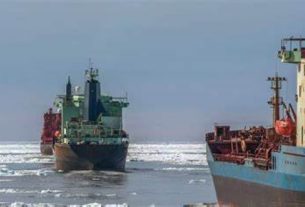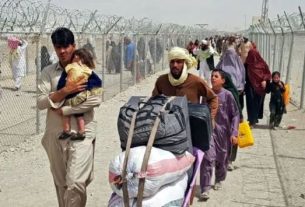By corroding the legitimacy of governments, exacerbating domestic inequalities, eroding public trust in governance institutions, elite capture has diminished the country’s credibility and reputation on the world stage.
Riaz Missen
Elite capture, a phenomenon deeply rooted in feudalism and the contentious privatization drive of the 1990s and beyond, has led to the creation of powerful monopolies and mafias within the society exerting undue influence over decision-making processes to advance their own interests at the expense of the broader population. This practice has significant implications for both domestic governance and Pakistan’s reputation on the global stage.
At home, elite capture contributes to a growing disconnect between the ruling elite and grassroots communities, due to a paralysis of the third tier of government sanctioned by the Constitution under Article 140A. Consequently, powerful stakeholders, such as wealthy individuals, influential families, or corporate interests, use their leverage over ruling parties to shape policies and decisions in ways that primarily benefit themselves or their associates. This leads to a concentration of wealth and power among a small segment of society, exacerbating inequalities and marginalizing the interests of ordinary citizens.
Moreover, elite capture undermines transparency, accountability, and inclusivity in governance, eroding public trust in institutions and fuelling discontent among the population. When citizens perceive that their voices are not being heard and that decision-making processes are dominated by a select few, it breeds resentment and disillusionment, further widening the gap between the ruling elite and grassroots communities.
Like a wolf in sheep’s clothing, the veneer of democracy masks the true nature of power dynamics, where the first order of business for the victors is to vanquish their opponents into submission.
The electoral battlefield becomes a theatre of mockery, where the vanquished are scorned for being “selected” rather than elected, and the spirit of democratic discourse is suffocated by the stench of vindictiveness.
Not surprisingly, Pakistan’s political landscape is marred by polarization and controversy. Dynastic rivalries and disputed elections cast a long shadow over the nation’s democratic credentials, with allegations of electoral malpractice eroding public confidence in the legitimacy of the government.
Political stability
The spectacle of national elections often unfolds like a tragicomedy, leaving the nation teetering on the precipice of uncertainty and disillusionment. The recurring narrative of hung parliaments and paralyzed governments paints a portrait of democratic façade veiling the mood of dictatorial impulses.
At the heart of Pakistan’s electoral conundrum lies the paradox of democratic pretence overshadowed by authoritarian tendencies. Like a wolf in sheep’s clothing, the veneer of democracy masks the true nature of power dynamics, where the first order of business for the victors is to vanquish their opponents into submission. The electoral battlefield becomes a theatre of mockery, where the vanquished are scorned for being “selected” rather than elected, and the spirit of democratic discourse is suffocated by the stench of vindictiveness.
Within the corridors of power, victors face a Herculean task – to consolidate their grip on authority and silence dissenting voices within their own ranks. Like a snake devouring its own tail, the winning party grapples with internal strife and power struggles, as factions vie for supremacy and loyalty is bought with promises of patronage. The lack of democracy within the ruling party transforms it into a breeding ground for autocratic tendencies, where the whims of the few outweigh the needs of the many.
The culmination of these systemic failures is a parliament shackled by the chains of vested interests and bureaucratic inertia. Like a puppet on strings, the government dances to the tune of powerful lobbies and entrenched bureaucracies, rendering bold decisions and sustainable policies a distant fantasy. The hope for transformative change is stifled by the stranglehold of vested interests, leaving the nation mired in stagnation and despair.
Sovereignty
On the global stage, elite capture tarnishes Pakistan’s reputation and credibility, making it more difficult to engage with the international community effectively. Foreign governments, multilateral organizations, and investors view Pakistan with scepticism if they perceive that decision-making processes are influenced by narrow interests rather than the broader national interest. This surely undermines diplomatic efforts, hinder foreign investment, and impede Pakistan’s ability to pursue its strategic objectives in areas such as trade, security, and development.
The spectre of ethno-religious militancy fuelled by foreign actors and simmering domestic grievances, poses a grave threat to Pakistan’s internal cohesion and territorial integrity. Like a serpent coiled around the nation’s foundations, militants sow discord and division, undermining Pakistan’s sovereignty and eroding public trust in the government’s ability to provide security and stability.
Furthermore, perceptions of elite capture contribute to concerns about corruption and governance challenges, which can impact Pakistan’s standing in global rankings and indices measuring factors such as transparency, rule of law, and ease of doing business. A reputation for corruption and lack of accountability can deter foreign investment, undermine diplomatic partnerships, and weaken Pakistan’s influence in international forums.
Adding to the complexity are the internal fissures that threaten Pakistan’s stability from within. The spectre of ethno-religious militancy fuelled by foreign actors and simmering domestic grievances, poses a grave threat to Pakistan’s internal cohesion and territorial integrity. Like a serpent coiled around the nation’s foundations, militants sow discord and division, undermining Pakistan’s sovereignty and eroding public trust in the government’s ability to provide security and stability.
Not surprisingly, in the tumultuous landscape of international affairs, few nations exemplify the intricate dance between sovereignty and stability as vividly as Pakistan. Situated at the crossroads of geopolitics, history, and culture, Pakistan’s journey towards asserting its sovereignty and achieving stability has been a perilous one, fraught with challenges and obstacles at every turn.
Perpetual dependency
At the heart of Pakistan’s struggle lies the delicate balance between asserting its sovereign rights and navigating the complex web of international relations. The nation’s efforts to secure its energy needs, for instance, encapsulate this struggle vividly. Like a tightrope walker teetering on the edge, Pakistan must tread carefully between its imperative for energy security and the ever-looming threat of international sanctions. The fear of reprisals from global powers casts a shadow over Pakistan’s sovereign decision-making, leaving it caught between a rock and a hard place.
Moreover, Pakistan’s entanglement in ambitious projects such as the China-Pakistan Economic Corridor (CPEC) serves as a microcosm of its broader challenges. Like a ship sailing into uncharted waters, Pakistan embarked on the CPEC with lofty aspirations for economic development and infrastructural growth. However, lurking beneath the surface are concerns of falling into a debt trap, as critics warn of the dangers of overextension and unsustainable liabilities. The nation finds itself navigating treacherous waters, wary of the siren call of economic prosperity and the potential pitfalls that lie ahead.
The way out — good governance, inclusive development
Elite capture undermines Pakistan’s global standing by corroding the legitimacy of governments, exacerbating domestic inequalities, eroding public trust in governance institutions, and diminishing the country’s credibility and reputation on the world stage. Addressing elite capture is therefore essential not only for improving domestic governance and fostering inclusive development but also for enhancing Pakistan’s ability to engage effectively with the international community and pursue its strategic interests in an increasingly interconnected world.__The Friday Times Pakistan





